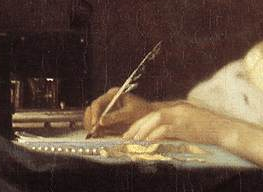21-22 juin 2012, London : Court Medicine : Healthcare Personnel and Sanitary Politics in European Courts, 15c-18c.
The workshop on court medical practitioners will discuss the major narratives of the building of modern states through one category of experts, who contributed to their growth in a manner not dissimilar to engineers or mathematicians : that of court practitioners in the Renaissance and early modern period (15c-18c). Court medical practitioners changed in numbers, occupations and functions during that period, and included different specialities within body-care : the workshop will first focus on the occupations in charge of healthcare and aimed at analysing their nature, from astrologers to midwives, their growth and involvement in aulic practices. Invited speakers will accordingly discuss the decisive change from versatile functions, in which healthcare represented only one of their function among other, to specialized employment, which could be connected to the emergence and circulation of new medical knowledge during the seventeenth century. Departing from the sole history of body care within the court, the invited speakers will collectively discuss the role of medical court practitioners in the redefinition of medicine and medical practices that occurred in the early modern period in terms of ideas and technologies, as well as a formulation of healthcare politics, from sanitary or occupational regulations up to the origins of welfare state. In this perspective, relationships between religion, medicine and politics will be reassessed.
Dates and location :
London (The London School of Economics ? The Wellcome Library ?) ; June 21-22, 2012
Organizers :
Benoist Pierre, Centre d’Études Supérieures de la Renaissance (Univ/ François-Rabelais, Tours)
Christelle Rabier, Department of Economic History, The London School of Economics
Patrick Wallis, Department of Economic History, The London School of Economics
Partnership
The Centre d’Études Supérieures de la Renaissance (Tours).
Scientific background
The workshop aims at refocusing on issues in political history, with its implications in terms of therapeutic practices and medical thoughts on the one hand, and the history of the State, on the other, from the conservation of the king’s health to sanitary regulations. Health- and body-care in European courts have been at the forefront of research in cultural history and major research programmes. These scholarly contributions have enriched the history of bodily practices and personal health. Although they have given richer views on social and economic elite healthcare practices, they have lost the particularity of the court as a location of power and politics and the implications of those practices, not only to preserve the rulers’ bodies but also as tools for control, such as the setting of suitable diplomatic atmospheres, in the case of Duchy of Savoy’s barber-surgeons (S. Cavallo) or legal or scientific advising (S. di Renzi, E. Andretta). The workshop foregrounds an in-depth revision of the role of court practitioners in early-modern politics.
Building on historiographies that have independently studied medical courtiers through the issues of medical science or courtly practices, the workshop intends to offer fresh perspectives on the intersection of medicine and politics. In that matter, medicine can rightly be considered as an instrument of power, whose dimensions were reconfigured thanks to its closeness to power. By delegating to medical occupational bodies its information, for collection and diffusion, and decision even, authorities included them in the process of political legitimacy, which in turn had consequences on the fashioning of identities and their own way to organize knowledge and action. Not only did the courts supply their serving practitioners with gratifications and salaried positions, but gave them a reinforced status among health care occupations and some authority by which they were awarded some scrutiny into and right to defining policies and regulations in healthcare. As a reward, the States have won the tools for sanitary risk and civil populations’ healthcare management : assessment of therapeutic innovations, debates on poverty, distribution of medicines, price fixing for drugs and medical services, preventive administration of epidemics, military medical care, legal medicine development, etc. Here, the parallel with court prelates is striking : religion not only served as an instrument of state control, but was instrumental to the shaping of Counter-Reformation Europe politics, through the various functions served by courtier ministers of the church, who in turn intended to made larger designs come true. Thirty years ago, Foucault offered close issues on medicine and politics. By focusing on actual locating of power and politics, and an earlier period, the workshop aims at challenging that the periodization offered by the French philosopher and replacing medicine into the larger history of the construction of modern states.
The workshop accordingly will explore a crucial period to the history of European courts, from the late fifteenth to the eighteenth century, which was also founding for the history of sanitary politics, from epidemics management in the Mediterranean to the poor laws in Northern Europe. Scholars working on different European courts will thus offer comparative perspectives on the courtly places of power, in contrast with state and urban administrations, and lay out the tensions between medical knowledge and sanitary power.
Topics covered by the workshop will include :
– Court medical personnel : How can one delineate the court “medical practitioners” ? What were their numbers, modes of employment and payment ? How did they evolve ? Which were the occupations relating to health- and body-care ? What were their occupational qualifications ? What functions did they serve in court ?
– The court as a place of medical innovation : how did medical practitioners use the court to support their innovative ideas and technologies ? To what extent court cultures changed therapeutic practices and medical thought ?
– Medical practitioners and the politics of health : To what extent medical courtiers changed the politics of health sponsored by court rulers ? To what extent the enforcement of health politics supported early modern regimes ?




